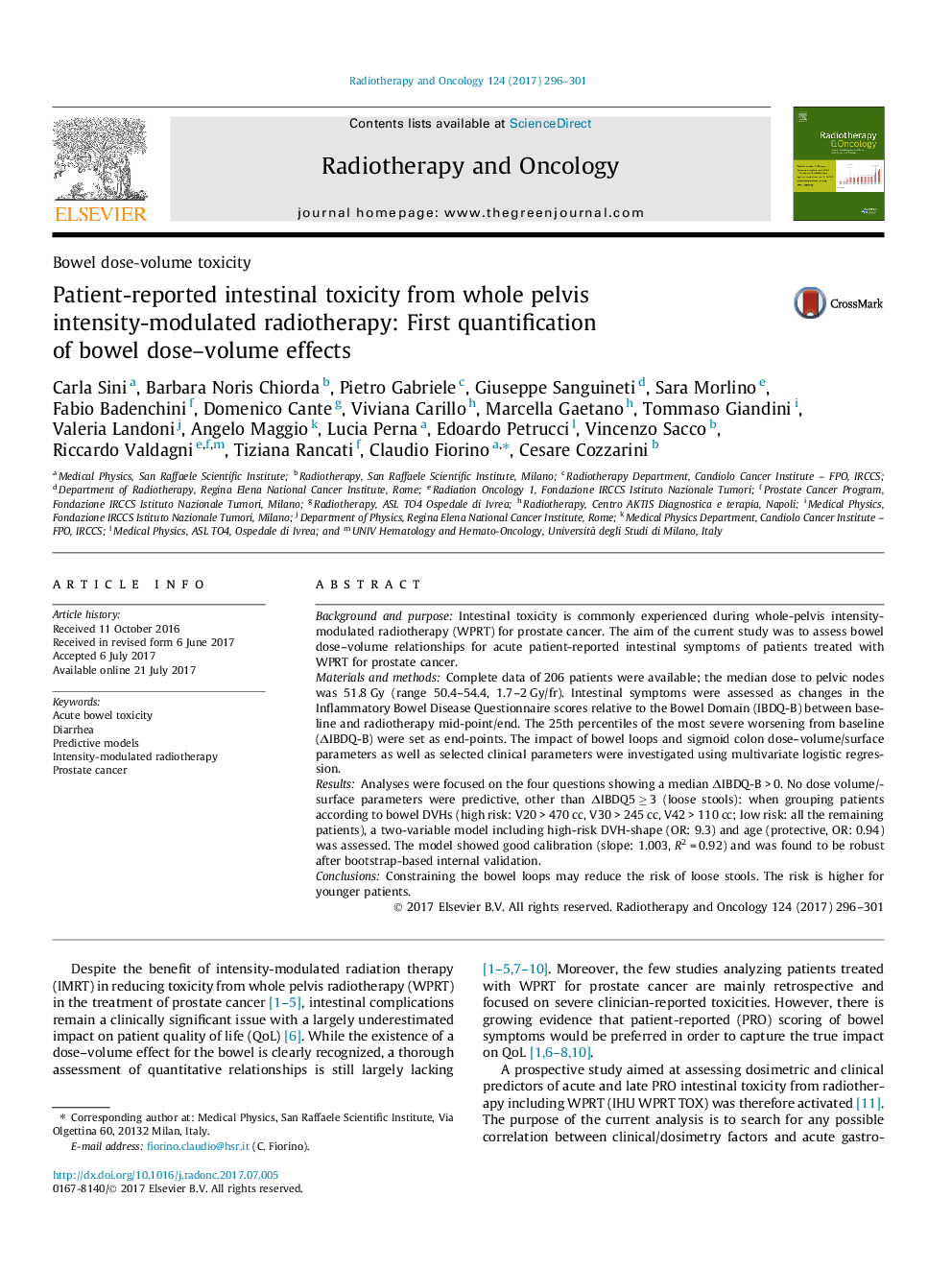| Article ID | Journal | Published Year | Pages | File Type |
|---|---|---|---|---|
| 5529476 | Radiotherapy and Oncology | 2017 | 6 Pages |
Background and purposeIntestinal toxicity is commonly experienced during whole-pelvis intensity-modulated radiotherapy (WPRT) for prostate cancer. The aim of the current study was to assess bowel dose-volume relationships for acute patient-reported intestinal symptoms of patients treated with WPRT for prostate cancer.Materials and methodsComplete data of 206 patients were available; the median dose to pelvic nodes was 51.8 Gy (range 50.4-54.4, 1.7-2 Gy/fr). Intestinal symptoms were assessed as changes in the Inflammatory Bowel Disease Questionnaire scores relative to the Bowel Domain (IBDQ-B) between baseline and radiotherapy mid-point/end. The 25th percentiles of the most severe worsening from baseline (ÎIBDQ-B) were set as end-points. The impact of bowel loops and sigmoid colon dose-volume/surface parameters as well as selected clinical parameters were investigated using multivariate logistic regression.ResultsAnalyses were focused on the four questions showing a median ÎIBDQ-B > 0. No dose volume/surface parameters were predictive, other than ÎIBDQ5 â¥Â 3 (loose stools): when grouping patients according to bowel DVHs (high risk: V20 > 470 cc, V30 > 245 cc, V42 > 110 cc; low risk: all the remaining patients), a two-variable model including high-risk DVH-shape (OR: 9.3) and age (protective, OR: 0.94) was assessed. The model showed good calibration (slope: 1.003, R2 = 0.92) and was found to be robust after bootstrap-based internal validation.ConclusionsConstraining the bowel loops may reduce the risk of loose stools. The risk is higher for younger patients.
